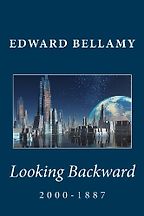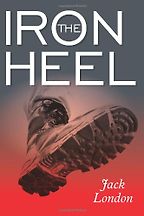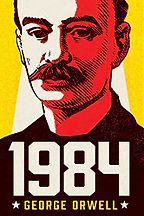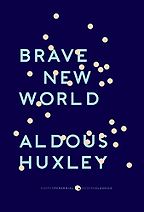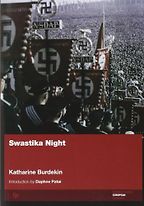Your book The Fat Years has been described as being both a utopian and a dystopian novel. Which is it?
When I had the idea of writing this book, it was 2008. That was a dramatic year in China with a lot of things happening, among them the Beijing Olympics. The world was going through an economic crisis. I wasn’t sure if my readers would agree with me and my feelings about China at that time. I set my story in 2013, the not-too-distant future, so I could come up with some fictional events to explain my views. It was essentially all about the present and what I call now the “new normal” of China, the Fat Years.
Some reviewers thought that since it is set in the future it must be science fiction, and science fiction has these sub-genres, utopia and dystopia. I realised people would think of it in that way – and that in particular they would compare it to George Orwell’s Nineteen Eighty-Four.
But it’s not quite a dystopia that you’re describing?
It’s a different kind of dystopia, or a different kind of utopia-dystopia. Many people think it’s a better world. If you talk with the people in China’s major cities, sometimes you wonder – why are they so optimistic, so euphoric?
I prefer the term heterotopia, a term coined by the French philosopher Michel Foucault and recently reintroduced into Chinese by Professor David Wang of Harvard University. It’s not exactly a utopia: it’s a realm you can have a glimpse of, but it’s very difficult to talk about or to see the whole picture because it’s almost beyond our comprehension.
The first of the books you chose is Edward Bellamy’s Looking Backward. Is it about a utopia or a dystopia – or a heterotopia?
This book came out early, in the 19th century. At that time there were many utopian novels. It’s set in America, where a future socialist state will solve or eradicate all the ills of society of late 19th century American capitalism. The protagonist Julian West doesn’t see those ills at the beginning of the novel: but the author contrives to put him to sleep for 100 years. When he is woken and he adjusts to his new life, he sees how different things are in the future – an industrial society where everyone shares the capital equally. He begins to regard the past, which is the author’s and the contemporary readers’ present, as nightmarish.
“If you talk with the people in China’s major cities, sometimes you wonder – why are they so optimistic, so euphoric?”
Bellamy is envisioning a better world, that’s his intention. It was supposed to be a utopia, and it was very popular – many people identified with this kind of socialist state at that time, even in North America. But it was criticised too. The world he imagined is a world of nationalistic “industrial armies”, not the kind of artisan-libertarian socialism in another famous utopian novel News From Nowhere, by his contemporary William Morris. It was very prescient, in the sense that Bellamy almost tells the future of a certain Communist country that came two decades later.
Trotsky used the same word – “prescient” – to describe The Iron Heel by Jack London. He was referring to the author’s vision of the tensions that could arise between leaders of socialist movements. Is it important for this genre to talk about how things really are, or how they will be?
Many dystopian novels are cautionary tales. I’m sure the authors have that in mind when they write – it’s a warning to their contemporaries. Jack London wrote about a world where American democracy degenerates into an oligarchic state, very similar to a fascist state. I don’t think he ever used the word fascist, but it was a fascist state. That was his warning at the time, in the early decades of the 20th century. This is a tradition that we need to remind ourselves of when we think about contemporary China.
It also aroused a lot of interest in the United States after 9/11, when Bush junior’s new policies were branded as a new form of state fascism – that’s a bit of an overstretch, I know.
You mentioned Nineteen Eighty-Four earlier. That book gives us a year, an actual date for Orwell’s particular warning. Do you think it’s very different to read it after Nineteen Eighty-Four?
In some parts of the world, people do not care about Nineteen Eighty-Four too much because they think it’s a thing of the past now that the Cold War has ended and the former Soviet Union has collapsed. But to Chinese intellectuals, it’s still very important for their understanding of what’s happening inside China.
Nineteen Eighty-Four is seriously read in China by intellectuals, who see similarities between the world of George Orwell and present-day China, though they also know there are a lot of differences. Nineteen Eighty-Four describes a society of scarcity, and wherever you turn to, you’re being watched by Big Brother. It’s a little bit different in China because [contemporary China] is a society of abundance, and you probably enjoy certain personal freedoms.
One character in The Fat Years makes a reference to Aldous Huxley’s Brave New World. Was that book also important for you and your description of China?
Brave New World was written in the 1930s, and the book portrays a happy dystopia. People are happy all the time because they have this happy drug, soma, and the pleasure principal is honoured. There is an abundance of sex. People have a good time. In this sense it’s closer to what we can see superficially in China than Nineteen Eighty-Four.
Is Brave New World a popular read in China?
It’s popular, but far less popular than Nineteen Eighty-Four. Those who read dystopian novels tend to be very political, and because Nineteen Eighty-Four is about an authoritarian state it can feel more pertinent. But Brave New World shows there’s another side to a new totalitarian state – a consumerist totalitarian state. That’s exactly what’s happening in China.
Also, you don’t know what’s happening to others – to the marginal people like the barbarians of Brave New World – because you are not in contact with them. There are certain very marginal groups in China whom you never notice. For instance the petitioners [to central government authority against local injustices] in Beijing. There are thousands of them, they are everywhere if you look out for them.
They vanish in your novel, and it takes a while for people to realise.
Right, because you can chose not to see them, or what’s happening in Tibet and Xinjiang. Most people don’t care what’s happening there, because they don’t see it. Unless you go to these places – just like in Brave New World, where the characters leave the normal, happy world, and encounter different people. So in a way Brave New World and Nineteen Eighty-Four complement each other when we try to measure what is happening in China now.
Your next selection – Swastika Night by Katherine Burdekin – stands out because it’s the only dystopian novel on your list by a female author. Can you tell us why you picked this one?
The book was written in the mid 1930s, before the Second World War. The author is warning that the Nazi state will win a major war and then rule for seven centuries. It’s very possible that the Nazis and the fascists could have won, so it’s a kind of alternative history. The book was read by many socialist book clubs in the UK at the time, but after the war it was forgotten, because fascism was defeated in many people’s minds and it wasn’t relevant anymore.
Get the weekly Five Books newsletter
A recent revival of interest in the novel is mostly from a feminist angle, because in this ruthless state people are discriminated against and women are considered inferior – fascism emphasises masculinity and makes a myth of fraternal feeling. But I was interested in its description of a sustainable fascist state. In the book, there could be no end to a fascist state. I see it as a cautionary tale of how a new type of Chinese state could stay in power.
It’s one of the less well-known books on your list. How did you come across it?
I was looking for dystopian novels about fascism. I always suspected there were novels in the thirties warning against fascism, even before the Second World War. Somebody must have known what would happen if they won, writers must have come out with some ideas about it. I thought it might be useful for me to imagine what China could be. That’s how I came across Iron Heel as well.
You’ve squeezed in a sixth pick – Liang Qichao’s Chronicle of the Future of a New China. How did he envisage the future?
He wrote this in 1902, predicting that by 1962 China would be the leading country in the world, that everyone would come to and praise China. It’s almost like today – almost, but not quite yet. He was very optimistic.
I think if China didn’t go through the detour of Maoist rule, something like that would probably have happened in the sixties or seventies, as in Japan, Singapore, Taiwan, Korea and Hong Kong. It would be a capitalist world, with an export-orientated economy and cheap labour. The coastal cities would be very prosperous. There would be inequality, probably something like the present day with great disparity of wealth between the urban rich and the rural poor. Without the communist detour, something similar to today would have already happened.
This is the only Chinese book on the list. Why did you single this one out?
It’s very rare, this kind of utopian novel in China.
But you did say that some dystopian novels are very widely read in China. Why are we not seeing more utopian and dystopian books from China?
For the longest time, people did not follow dystopian or utopian novels. During the Cultural Revolution and the eighties there were only a few kinds of novels you could write. It was always a romantic vision of the Communist Party. In a way that’s a kind of utopia – it has only positive things to say about the coming society.
After that, understandably, writers turned to realism, trying to expose what went wrong in the Cultural Revolution. They were trying to write about change – the Chinese saw themselves in yet another abrupt change after the Cultural Revolution, swaying from one thing to another. A lot of people wrote about these changes, and that is what drew everyone’s attention.
On top of that there was censorship, so you had to come up with a very literary way of treating your material. Magical realism was popular for quite some time, because you couldn’t write about the present directly, you had to do it in a roundabout way. Magical realism allowed you to do this, to write about the reality of something imaginary.
So in the eighties and nineties most of the better novelists were writing about the past. They were not really thinking ahead. There have been more futuristic novels in the last ten years or so – I am told there is more and more serious science fiction coming up now. That could be indicative of something.
Five Books aims to keep its book recommendations and interviews up to date. If you are the interviewee and would like to update your choice of books (or even just what you say about them) please email us at [email protected]
Five Books interviews are expensive to produce. If you've enjoyed this interview, please support us by donating a small amount.
